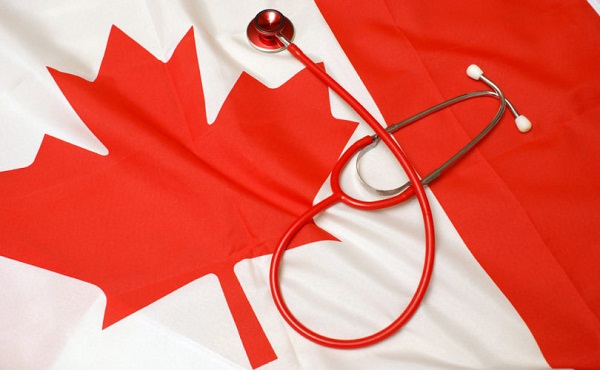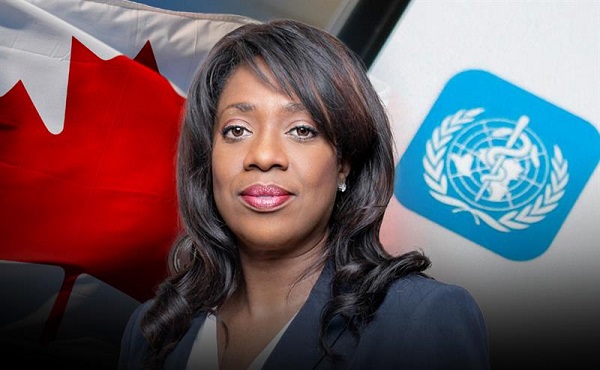Health
3+ million Canadians waiting for basic care as health system crisis continues

From LifeSiteNews
Canada’s health system crisis continues as a new report shows over 3.2 million citizens are stuck waiting for basic care including surgeries, diagnostic scans and appointments with specialists.
Millions of Canadians seeking healthcare have been waitlisted, according to most recent reports.
In an October 24 press release, Canadian think tank SecondStreet reported that over 3.2 million Canadians are still waiting to receive basic healthcare, including surgeries, diagnostic scans and appointments with specialists.
“Despite record health spending by provincial governments to reduce wait times, improvements to waiting lists have been quite sluggish,” said Harrison Fleming, Legislative and Policy Director at SecondStreet.org.
“With more than three million Canadians waiting today – nearly the same number since Canada came out of the pandemic – it’s clear that throwing money at the problem isn’t the answer,” he continued. “Copying policies that work well in universal systems in Europe could help.”
SecondStreet further revealed that their data is incomplete since neither Yukon or Prince Edward Island provided data, meaning the actual number of Canadians awaiting health care is likely closer to 5.1 million patients, or about one in eight Canadians.
According to the data, wait times in Saskatchewan have improved since the “pandemic” as both the number of patients waiting for surgery and diagnostic scans have dropped 22% and 11% respectively.
In Ontario, residents saw surgical waitlist volumes decrease 19%, while diagnostic waitlist volumes rose 32%.
Quebec’s numbers saw a greater improvement, as the province witnessed a 42% decrease in diagnostic waitlist volumes while only a 4% increase in surgical waitlist numbers.
The Maritime provinces provided little to no data, with New Brunswick only reporting a 2% increase in surgery wait times and Newfoundland reporting a 31% drop in diagnostic waitlists. Similarly, Nova Scotia saw a 33.5% drop in those waiting for surgery.
At the same time, British Columbia’s surgical waitlist volume has increased 10%, while 204,737 patients are on waitlists for MRIs, CT Scans, colonoscopies, and other GI endoscopies.
Additionally, Alberta’s surgical and diagnostic waitlists increased 4% and 3% respectively, leaving nearly 200,000 patients waiting for surgical and diagnostic care. However, the province explained that their new data drew from a larger pool of health providers than previously provided.
Finally, in Manitoba, the number of people waiting for surgery and to receive a diagnostic scan increased over 16% to a total of 76,021.
The continued problem with long waits for care comes after years of reports that the medical systems of Canadian provinces are woefully understaffed compared to the population. In May, data revealed that Ontario will need 33,200 more nurses and 50,853 more personal support workers by 2032 to fill the ongoing shortages, figures Premier Doug Ford’s government had asked the Information and Privacy Commissioner to keep secret.
Many have pointed to the fact that the crisis was exacerbated when provinces began levying COVID vaccine mandates as a condition of employment for healthcare workers. While the official number of nurses and other workers relieved of their duties for refusing to take the experimental injections remains uncertain, Raphael Gomez, director of the Centre for Industrial Relations and Human Relations at the University of Toronto, told CTV News that as many as 10 percent of nurses in Ontario, the nation’s most populous province, either quit or retired early as a result of the mandates.
Officials tried to justify the mandates by claiming that the unvaccinated were “unprotected” from COVID while the vaccinated were believed to have immunity from the virus. However, there is overwhelming evidence that the COVID vaccine does not prevent transmission and can also cause a plethora of negative side effects.
Similarly, in February, Health Canada revealed that Canada was short 89,995 doctors, nurses and other front line health care workers, which is double the rate from 2020 before COVID vaccine mandates were imposed.
Currently, wait times to receive care in Canada have increased to an average of 27.7 weeks, leading some Canadians to despair and opt for euthanasia instead of waiting for assistance. At the same time, sick and elderly Canadians who have refused to end their lives via MAiD have reported being called “selfish” by their providers.
Health
Leslyn Lewis urges Canadians to fight WHO pandemic treaty before it’s legally binding

From LifeSiteNews
Conservative MP Leslyn Lewis is urging Canadians to demand a parliamentary debate on the WHO Pandemic Agreement, highlighting risks to national sovereignty.
Conservative Member of Parliament (MP) Leslyn Lewis called on Canadians to petition against the World Health Organization’s (WHO) pandemic treaty before it becomes legally binding.
In an October 23 post on X, Lewis encouraged Canadians to demand that politicians debate the WHO Pandemic Agreement before it becomes law after warnings that the treaty could undermine national freedom and lead to global surveillance.
“I have raised red flags about its implications on Canada’s health sovereignty and the federal government’s willingness to enter a legally binding treaty of this weight without any input from Parliament,” she declared.
In May, Canada, under Liberal Prime Minister Mark Carney, adopted the treaty despite warnings that the agreement gives the globalist entity increased power in the event of another “pandemic.”
However, Lewis revealed that since the agreement has yet to be officially signed, Canada is not bound to it and can still make amendments.
“We are now in a critical window of opportunity to ask tough questions and debate the treaty before it is signed by the Minister of Foreign Affairs and binds our nation,” she explained.
Lewis encouraged Canadians to sign a petition calling for a debate of the agreement as well as contacting their local MPs to request a parliamentary review of the treaty.
Lewis revealed that Canadians’ persistent opposition to the treaty has already resulted in some of the more dangerous clauses, including restricting free speech, freedom of movement, and government surveillance, being removed from the final agreement.
“Thanks to the engagement of countless Canadians and concerned citizens around the world, the most extreme provisions in the WHO Pandemic Treaty were removed — these measures would have undermined national healthcare sovereignty and given international bureaucrats sweeping powers,” Lewis declared.
“The removal of provisions on vaccine mandates, misinformation and disinformation, censorship requirements, travel restrictions, global surveillance, and mandatory health measures happened because people paid attention and spoke up,” she continued.
Among the most criticized parts of the agreement is the affirmation that “the World Health Organization is the directing and coordinating authority on international health work, including on pandemic prevention, preparedness and response.”
While the agreement claims to uphold “the principle of the sovereignty of States in addressing public health matters,” it also calls for a globally unified response in the event of a pandemic, stating plainly that “(t)he Parties shall promote a One Health approach for pandemic prevention, preparedness and response.”
Business
Bill Gates walks away from the climate cult

Billionaire Bill Gates — long one of the loudest voices warning of climate catastrophe — now says the world has bigger problems to worry about. In a 17-page memo released Tuesday, the Microsoft co-founder called for a “strategic pivot” away from the obsessive focus on reducing global temperatures, urging leaders instead to prioritize fighting poverty and eradicating disease in the developing world. “Climate change is a serious problem, but it’s not the end of humanity,” Gates wrote.
Gates, 70, argued that global leaders have lost perspective by treating climate change as an existential crisis while millions continue to suffer from preventable diseases like malaria. “If I had to choose between eradicating malaria and preventing a tenth of a degree of warming, I’d let the temperature go up 0.1 degree,” he told reporters ahead of next month’s U.N. climate conference in Brazil. “People don’t understand the suffering that exists today.”
For decades, Gates has positioned himself as a leading advocate for global climate initiatives, investing billions in green energy projects and warning of the dangers of rising emissions. Yet his latest comments mark a striking reversal — and a rare admission that the world’s climate panic may have gone too far. “If you think climate is not important, you won’t agree with the memo,” Gates told journalists. “If you think climate is the only cause and apocalyptic, you won’t agree with the memo. It’s a pragmatic view from someone trying to maximize the money and innovation that helps poor countries.”
The billionaire’s change in tone is sure to raise eyebrows ahead of the U.N. conference, where climate activists plan to push for new emissions targets and wealth transfers from developed nations. Critics have long accused Gates and other elites of hypocrisy for lecturing the public about fossil fuels while traveling the globe on private jets. Now, Gates himself appears to be distancing from the doomsday rhetoric he once helped spread, effectively admitting that humanity faces more immediate moral imperatives than the weather.
(AP Photo/Alex Brandon)
Stunning Climate Change pivot from Bill Gates. Poverty and disease should be top concern.
-

 Business1 day ago
Business1 day agoTrans Mountain executive says it’s time to fix the system, expand access, and think like a nation builder
-

 Alberta2 days ago
Alberta2 days agoPremier Smith sending teachers back to school and setting up classroom complexity task force
-

 Crime2 days ago
Crime2 days agoSuspect caught trying to flee France after $100 million Louvre jewel robbery
-

 Alberta2 days ago
Alberta2 days agoThousands of Albertans march to demand independence from Canada
-

 Economy1 day ago
Economy1 day agoStunning Climate Change pivot from Bill Gates. Poverty and disease should be top concern.
-

 Addictions1 day ago
Addictions1 day agoThe Shaky Science Behind Harm Reduction and Pediatric Gender Medicine
-

 Business1 day ago
Business1 day agoFlying saucers, crystal paperweights and branded apples: inside the feds’ promotional merch splurge
-

 International1 day ago
International1 day agoBiden’s Autopen Orders declared “null and void”








